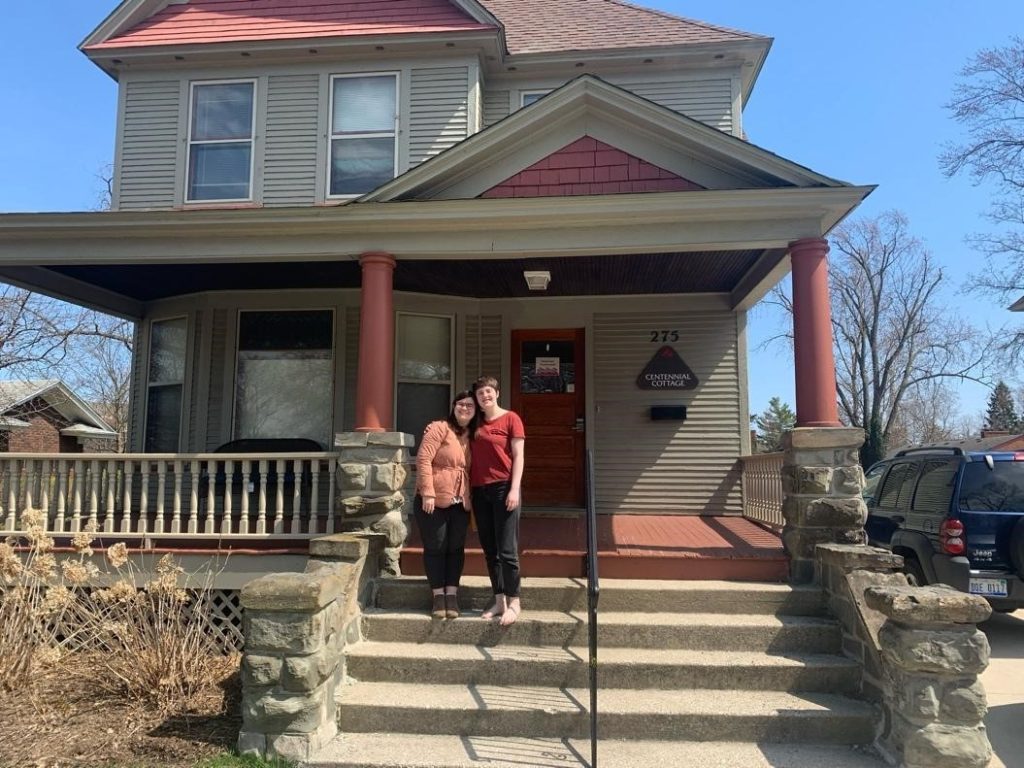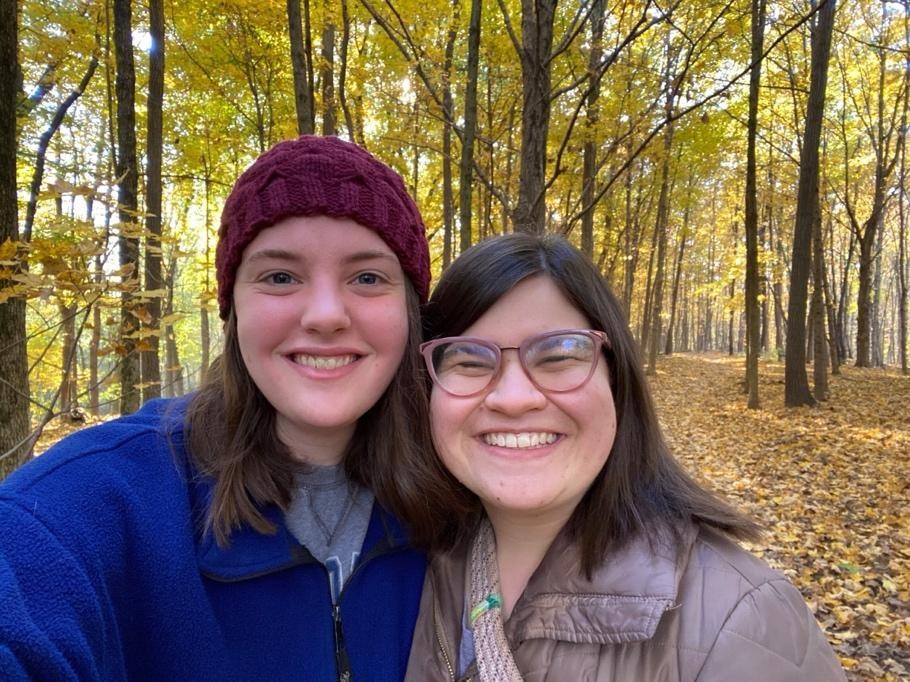Hannah Jones ’21 and Aine O’Connor ’20 first met as teaching assistants for Natalie Dykstra’s English 113 class in the fall of 2018. They quickly became close friends, and that friendship transcended far beyond their respective English 113 classrooms: they traveled to Paris, became roommates, and took as many English classes together as possible. Both would go on to get degrees in library and information science at the University of Illinois Urbana-Champaign and work as librarians, Hannah at the University of Minnesota Duluth and Aine at South Dakota State University. Here they share a few lessons their English major taught them—and how it’s helped them stay close post-Hope.
Maybe it’s because we technically met as co-workers, but we’ve always enjoyed working and writing together. Over the years, we’ve been blessed to have many opportunities to share projects and ideas with one another, all of which stem from our time at Hope in the English department. We wanted to take the opportunity with this blog to lay out a few life lessons Hope English taught us and to share our gratitude for how the department shaped our friendship then and continues to shape us now.

Lesson 1: Learn how to agree and disagree well. Good discussions about literature teach you very quickly that consensus on every issue is impossible, and at the same time, consensus on certain issues is critical. While we share many values and opinions—and continue to influence one another—there are also things we disagree about. Too often, we see friendships, whether in real life or in literature/media, end over a difference of opinion, and we feel lucky that we have a foundation of knowing how to disagree about a book to fall back on. That’s not to say that all differences in values can (or should) always be worked through, but that it’s important to decide on the issues that truly matter and learn how to disagree well on the issues that don’t. If one of the great benefits of reading is to see those different from us as fully human and as equally complex as we view ourselves, that fact must carry into how we discuss what we read (and beyond), and Hope’s English department offered us a safe environment in which we could practice the skill of disagreement.
Lesson 2: Learning isn’t (and shouldn’t be) a solely serious endeavor. From the first class we took together (Professor Salah’s wonderful Jane Austen and Popular Culture class) to the last (Professor Gruenler’s terrific Tolkien class), we were known to break down laughing, sometimes at inopportune moments. Whether we were encountering Austen’s unfinished short stories or Norse dwarf names—which included Tubby, Swig, and Great-Grandpa, among other gems—we couldn’t always treat even great literature with utter seriousness. Fortunately, with our professors, laughter and levity could lead to richer, more interesting conversations and creative analysis, especially when studying an author as humorous as Austen. As librarians, we embrace humor and laughter in our teaching sessions and our meetings with students, because we know there is tremendous value in approaching learning with joy alongside gravity, especially when that joy can foster better connections with colleagues and peers.

Lesson 3: There is more. We designated the ampersand (&) as the symbol for our friendship (one of us is ready to get it tattooed; one of us is a scaredy-cat). Why? Partially an inside joke from a transcription project we completed together, the ampersand also reflects the bedrock of our friendship: “Yes, and!” We said “yes” to working together as TAs, then to traveling and researching together in Paris, then to becoming roommates, and then to attending grad school together, where our graduate assistantships enabled us to continue working together as we began establishing our careers. We got so lucky almost six years ago when Professor Dykstra asked us to collaborate as TAs, but that luck could only have happened because the English department supported undergraduates stepping into leadership positions and celebrated creative approaches to teaching and learning. Our experiences at Hope, and the English department in particular, helped convince us that our voices and lived experiences mattered, that our contributions to scholarly conversations were valuable. Because of that support, we continue to say “Yes, and!” in our friendship as well as our scholarly pursuits.
Both of us are forever grateful and would be thrilled to talk with any current or future Hope student about the value of the English department and/or about librarianship.
Oh, and one last lesson—if the English department gives you the opportunity to go to Paris, DEFINITELY go to Paris. We miss you, Hope English!



